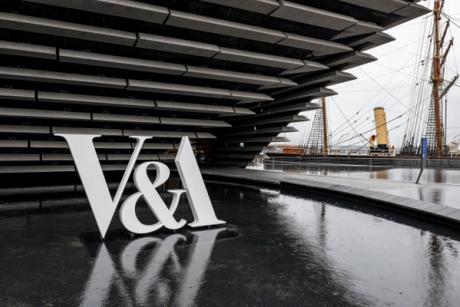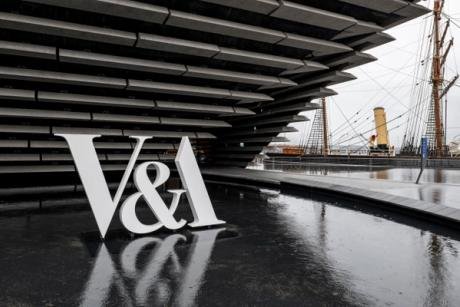
V&A Dundee, the Scottish branch of the Victoria & Albert Museum, is the latest UK institution to remove the Sackler name from its walls, fuelling the ongoing debate around so-called “toxic philanthropy”. The name, which appears on the walls of museums around the world, has become indelibly linked to the global opioid epidemic that some members of the family profited enormously from and are accused of fuelling via their company Purdue Pharma.
According to the BBC, V&A Dundee received a £500,000 donation from the Sackler Trust ahead of its opening in September 2018. Signage recognising the donation was taken down last month with a separate sign in the museum’s Oak Room removed in September last year.
The money, however, will not be sent back. A spokesperson for the museum told the BBC: “V&A Dundee, like other organisations who have removed crediting, is not in talks to return the historic capital support received for the creation of the museum, which were made before V&A Dundee opened in 2018.” The museum also confirmed to The Art Newspaper that it has not returned the donation.
From 2019 through to the present day, a series of prominent cultural institutions have cut ties with the Sackler family and removed the Sackler name from buildings.
These include the Louvre in Paris as well as the National Portrait Gallery, the Victoria and Albert Museum, the British Museum, the National Gallery, London, and the Tate group. In 2021, the Metropolitan Museum of Art in New York also dropped the Sackler name from seven exhibition spaces, including the wing that houses the Temple of Dendur.
V&A Dundee is not the first institution to confirm they will not return donations, either. In May, Oxford University announced the deletion of the Sackler name from the Ashmolean Museum, the university’s museum of art and archaeology, and the Bodleian Libraries, as well as three research positions at the Ashmolean. The university confirmed in a statement that “all donations received from the Sackler family and their trusts will be retained by the University for their intended educational purposes.”
Increasingly, institutions are drawing up “morals clauses“ that protect them “in the event of a donor falling from grace”, professor of law Terri Lynn Helge told The Art Newspaper last year, and allow them to disassociate from the donor in question.
Meanwhile, the situation surrounding the Sacklers continues to play out in the courts. In May a US appeals court approved a settlement which provided legal protection to the family in exchange for payments worth up to $6bn. But last month the US Supreme Court halted the agreement. The Financial Times reports that the decision represents a blow to members of the Sackler family who had sought to “turn a page on their legal woes”; the Supreme Court will hear oral arguments in December. The Sackler family have denied any wrongdoing.
The development of the opioid crisis, which claims the lives of at least 100 Americans daily according to medical reports, was recently documented in the Netflix series Painkiller.









